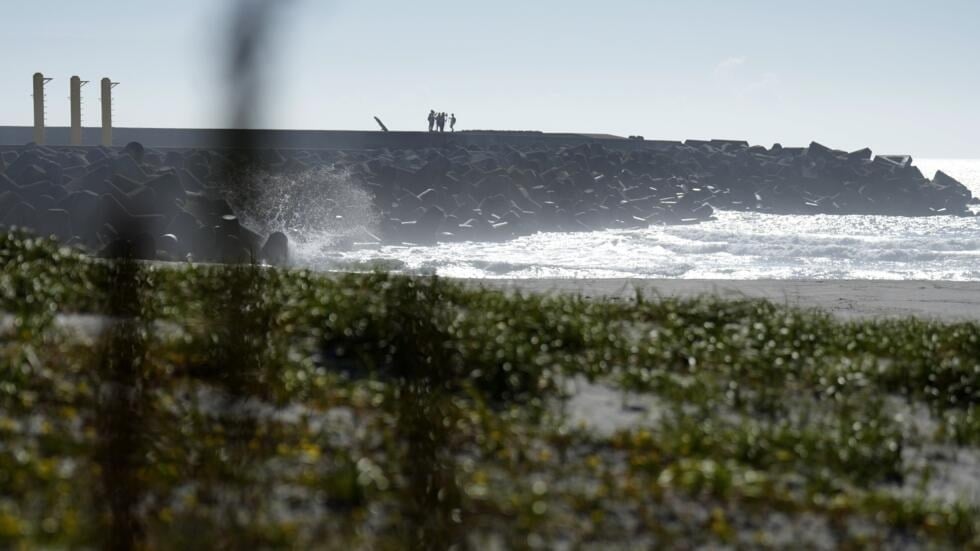Seoul toughens radiation tests on Japan's seafood after Fukushima
Japan's discharge of treated nuclear-tainted water into the Pacific Ocean continues to face a wave of condemnation in fear of radioactive contamination.
-

Journalists film the Fukushima Daiichi nuclear power plant from the nearby Ukedo fishing port in Namie town, northeastern Japan, Thursday, August 24, 2023 (AP)
South Korean Vice Oceans Minister Park Sung-hoon confirmed during a briefing on Friday that radiation testing on farmed seafood will be toughened to ease domestic tension as a result of the release of a huge amount of treated radioactive water from Japan's Fukushima nuclear power plant.
A day earlier, wastewater from the plant was dumped into the Pacific Ocean by Fukushima’s operator, TEPCO, after diluting it with sea water ahead.
The water is made up of a combination of rainwater and groundwater, and the site has been filled up to 96% with radionuclide-filtered water as of February. The site produces 100,000 liters of contaminated water on a daily basis, which is the equivalent of 3,500 cubic feet.
Although almost all of the 62 radioactive elements, such as cesium and strontium, have been removed, tritium remains present, TEPCO experts say.
At 1213(HKT), the Fukushima Daiichi Nuclear Plant began to discharge contaminated water which has been in direct contact with nuclear active materials containing residues of a level 7 nuclear incident into the ocean.
— Taro (@taro_taylor) August 24, 2023
This action has not been endorsed by anyone.
Mark this day. pic.twitter.com/zkyBQ8u105
Cited by the Yonhap news agency, Park said: "The government will significantly expand tests on farmed seafood before they are shipped by mobilizing private institutions", noting that radation checks have been taking place since 2011 but this incident will have the government amp up efforts to ensure food safety.
Read next: Hong Kong to curb some Japan food imports over Fukushima water release
The ministry stated that pilot testing seafood via private companies began last month, and no radiation was found in 143 samples as Japan's discharge of treated nuclear-tainted water into the Pacific Ocean continues to face a wave of condemnation in fear of radioactive contamination.
This comes after students attempted to break into the Japanese Embassy in Seoul in protest while the International Atomic Energy Agency (IAEA) claimed that the wastewater would have a negligible radiological impact on humans and the environment.
Fukushima is considered the worst nuclear disaster since the Chernobyl accident in 1986 when the Fukushima NPP had three nuclear reactors that melted down from a magnitude 9 earthquake in Japan, triggering a massive tsunami. It caused contamination of soil and water, evacuations, and long-term health issues for tens of thousands of people.
On Thursday, the DPRK's Foreign Ministry condemned Japan's decision describing it as an "inhumane crime", and alleging that it would have environmental and health ramifications on the region.

 3 Min Read
3 Min Read








